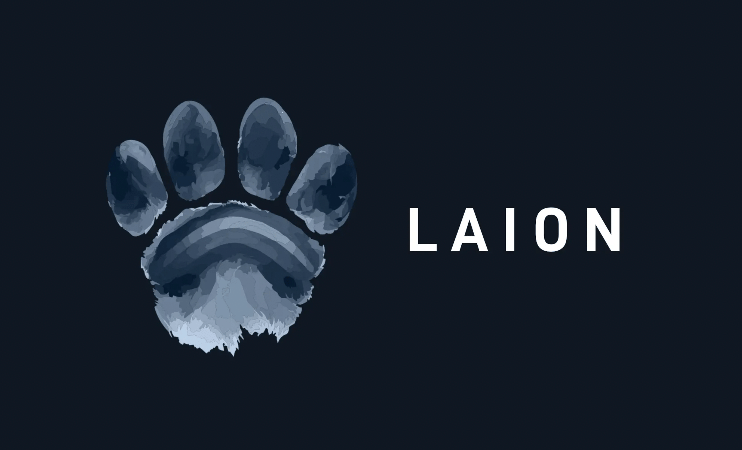Welcome, AI Enthusiasts.
OpenAI has introduced Sora, a new generative AI model capable of creating videos from text descriptions or images.
LAION, a German nonprofit known for maintaining AI training datasets, has launched BUD-E, an initiative to develop an open voice assistant with a focus on natural interactions and emotional intelligence.
In today’s issue:
🤖 OpenAI Unveils Sora: A Video-Generating Model With Impressive Results
🦾 German Nonprofit Develops Open Voice Assistant for Universal Access
🛠️ 3 New AI tools
💻 Custom prompts ChatGPT and DALL-E 3
🤖 3 Quick AI updates
Read time: 4 minutes

LATEST HIGHLIGHTS

Image source: OpenAI
To recap: OpenAI has introduced Sora, a new generative AI model capable of creating videos from text descriptions or images. Sora can generate 1080p movie-like scenes with multiple characters, various motions, and background details, maintaining coherence and avoiding "AI weirdness" in most cases. However, OpenAI acknowledges that Sora is not perfect and may struggle with simulating complex physics or understanding specific cause-and-effect instances. Despite its impressive capabilities, OpenAI is cautious about the potential for misuse and is working on tools to detect videos generated by Sora. They aim to engage policymakers, educators, and artists to identify positive use cases and ensure responsible deployment of the technology in the future.
The details:
1. Sora, OpenAI's latest model, can generate videos from text descriptions or still images, creating movie-like scenes with multiple characters and various motions.
2. OpenAI acknowledges that while Sora's generated videos are impressive, the model is not perfect and may struggle with simulating complex physics or understanding specific cause-and-effect instances.
3. OpenAI is cautious about the potential for misuse of Sora and is working on tools to detect videos generated by the model. They aim to engage policymakers, educators, and artists to ensure responsible deployment of the technology.
Here is the key takeaway: OpenAI has introduced Sora, a generative AI model capable of creating videos from text descriptions or images. While Sora's capabilities are impressive, including generating coherent scenes with multiple characters and motions, it is not without limitations and potential for misuse. OpenAI is proceeding cautiously, acknowledging the need for responsible deployment and ongoing engagement with stakeholders to address concerns and maximize the positive impact of this technology.

Image source: Laion
In Summary: LAION, a German nonprofit known for maintaining AI training datasets, has launched BUD-E, an initiative to develop an open voice assistant with a focus on natural interactions and emotional intelligence. Despite existing open-source voice assistant projects, LAION believes there's a gap in extensibility to leverage emerging AI technologies effectively. BUD-E aims to offer a fully open architecture, allowing integration with apps and services without licensing restrictions. While still in early stages, BUD-E's development involves collaboration with Ellis Institute, tech consultancy Collabora, and the Tübingen AI Center. LAION acknowledges the need to address hardware requirements and latency issues while prioritizing user experience refinement. While accessibility and potential ethical concerns, like facial analysis, are on the radar, LAION emphasizes adherence to safety and ethical guidelines outlined in the EU AI Act.
Key points:
1. LAION, a German nonprofit, has launched BUD-E, an open voice assistant initiative aiming to address shortcomings in existing open-source projects.
2. BUD-E focuses on natural interactions, emotional intelligence, and a fully open architecture, allowing integration without licensing restrictions.
3. Development involves collaboration with Ellis Institute, tech consultancy Collabora, and the Tübingen AI Center, with an emphasis on refining user experience and addressing hardware requirements.
4. While accessibility and potential ethical concerns like facial analysis are acknowledged, LAION emphasizes adherence to safety and ethical guidelines outlined in the EU AI Act.
Our thoughts: We find LAION's BUD-E initiative intriguing and potentially impactful. While there have been numerous attempts at open-source voice assistants, BUD-E's focus on natural interactions and emotional intelligence sets it apart. The collaboration with reputable institutions and organizations reflects a concerted effort to address existing challenges in voice assistant development. However, concerns regarding accessibility and ethical implications, such as facial analysis, warrant careful consideration and transparent implementation. Overall, BUD-E represents an exciting advancement in the open-source voice assistant space, with the potential to redefine how users interact with AI technologies.
TRENDING TECHS
🤳 Epic Selfie- Selfies so Epic they will break the like button
🧾 SingleStore Kai-100x-1000x faster analytics for MongoDB applications
🤖 izTalk- Break the Language Barrier with izTalk
AI DOJO
Advisor:
Prompt: Provide ideas for stress relief and relaxation techniques.
DALL-E 3
Illustration creation:
Prompt: Generate visual representations of healthy meal ideas for lunch.
QUICK BYTES
Google CEO Sundar Pichai inaugurated a new AI hub in Paris, housing 300 researchers and engineers. Despite no plans for a new AI team, the announcement was accompanied by government officials, signaling Google's aim to attract AI talent. The move reflects Google's insecurity about AI dominance, evident in its effort to emphasize AI investments amidst competition. This strategy aligns with other tech giants like Microsoft, which also announced significant AI infrastructure investments.
The U.S. Patent and Trademark Office has rejected OpenAI's trademark application for "GPT," stating it's merely descriptive and ineligible for registration. This decision deals a blow to OpenAI's branding efforts, though competitors aren't likely to rush to develop their own versions of the popular chatbot. Despite OpenAI's argument that it popularized the term "GPT" for "generative pre-trained transformer," the patent office noted its widespread usage in various contexts. While OpenAI retains significant mindshare with "GPT," its inability to trademark the term may lead to the emergence of similar products using the GPT branding, albeit without legal repercussions.
Kong is launching an open source AI Gateway, extending its API gateway to simplify the integration of applications with large language models (LLMs). With features like prompt engineering and credential management, developers can access multiple LLM providers through a single API without code changes. The gateway supports various LLM providers, aiming to make AI application development more accessible and secure, aligning with the increasing adoption of AI technologies across organizations. These AI-specific features are currently available for free, with plans for premium offerings in the future.
SPONSOR US
🦾 Get your product in front of AI enthusiasts
THAT’S A WRAP
